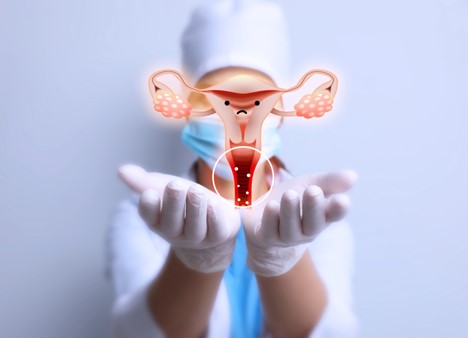Polycystic Ovary Syndrome (PCOD) is a common hormonal disorder that affects women of reproductive age, leading to irregular menstrual cycles, weight gain, acne, and even fertility issues. It’s a condition that affects the ovaries, which produce eggs for reproduction, and causes an imbalance of hormones in the body. Understanding the symptoms, causes, and effective treatment options can help manage this condition and improve overall health.
What is PCOD?
PCOD is a condition where a woman’s ovaries become enlarged and may develop small fluid-filled sacs (cysts) around the eggs. These cysts can disrupt the regular release of eggs, affecting the menstrual cycle. Women with PCOD may also have elevated levels of male hormones (androgens), which can lead to symptoms like excessive hair growth, acne, and thinning hair.
Symptoms of PCOD
The symptoms of PCOD vary from woman to woman, but the most common signs include:
1. Irregular Periods: One of the most common symptoms is the absence of periods or irregular cycles, which may result in heavy or prolonged menstrual bleeding.
2. Excessive Hair Growth (Hirsutism): Higher levels of androgens can lead to excessive hair growth on the face, chest, or back.
3. Acne and Oily Skin: Elevated male hormones can also contribute to persistent acne and oily skin, particularly around the face and upper body.
4. Weight Gain and Difficulty Losing Weight: Many women with PCOD struggle with weight management, as the hormonal imbalance can make it harder to shed extra pounds.
5. Thinning Hair or Hair Loss: PCOD can cause thinning of the hair on the scalp, which may lead to noticeable hair loss.
6. Infertility: The hormonal imbalance can interfere with ovulation, leading to difficulty conceiving or infertility in some women.
Causes of PCOD
The exact cause of PCOD remains unknown, but there are several factors that are believed to contribute to the condition:
1. Hormonal Imbalance: Women with PCOD often have higher levels of androgens, the male hormones that affect ovulation and cause symptoms like acne and excessive hair growth.
2. Genetics: PCOD can run in families, so women who have a mother or sister with PCOD may be at a higher risk of developing the condition.
3. Insulin Resistance: Many women with PCOD have insulin resistance, where the body’s cells don’t respond properly to insulin. This can cause higher insulin levels, which may lead to weight gain and exacerbate the symptoms of PCOD.
4. Increased Inflammation: Chronic inflammation can also play a role in the development of PCOD, as it has been linked to higher levels of androgens in the body.
Diagnosis of PCOD
To diagnose PCOD, a doctor will typically conduct the following:
1. Physical Examination: The doctor will check for signs of excess hair growth, acne, and other symptoms of PCOD.
2. Blood Tests: Blood tests can measure hormone levels, including androgens, to help confirm the diagnosis.
3. Ultrasound: An ultrasound can check for cysts in the ovaries, a common characteristic of PCOD.
Treatment Options for PCOD
While there is no cure for PCOD, several treatments can help manage the symptoms and improve the quality of life for women with the condition. Treatment options include:
1. Lifestyle Changes:
a. Diet: A healthy, balanced diet can help manage weight, insulin resistance, and reduce symptoms. A diet rich in fiber, lean proteins, and low-glycemic-index foods can be beneficial for women with PCOD.
b. Exercise: Regular physical activity can improve insulin sensitivity, reduce weight, and help with hormonal balance.
2. Medications:
a. Birth Control Pills: Birth control pills can help regulate menstrual cycles, lower androgen levels, and reduce symptoms like acne and excess hair growth.
b. Metformin: Often used to treat insulin resistance, Metformin can help regulate insulin levels and improve ovulation.
c. Anti-Androgen Medications: Medications like spironolactone can help reduce excessive hair growth and acne by blocking androgens.
d. Clomiphene: This fertility drug can help women with PCOD ovulate, making it easier to conceive.
3. Surgical Options:
a. Ovarian Drilling: In some cases, surgery may be required to remove small portions of the ovaries to restore normal hormone levels and promote ovulation.
4. Alternative Therapies:
a. Some women find relief with acupuncture or herbal treatments, although these should always be discussed with a healthcare provider.
Complications of PCOD
If left untreated, PCOD can lead to several complications, including:
1. Infertility: Difficulty ovulating can lead to challenges when trying to conceive.
2. Type 2 Diabetes: Insulin resistance increases the risk of developing Type 2 diabetes in women with PCOD.
3. Endometrial Cancer: Women with irregular periods and infrequent ovulation have a higher risk of developing endometrial cancer.
4. Cardiovascular Disease: Elevated insulin levels and increased inflammation can also increase the risk of heart disease.
How AMMA CHILDREN HOSPITAL Can Help?
At AMMA CHILDREN HOSPITAL, we offer comprehensive care for women with PCOD. Our experienced team of gynecologists, endocrinologists, and nutritionists work together to provide a holistic treatment plan tailored to each patient’s needs. We take a personalized approach to help you manage PCOD effectively, focusing on both medical treatments and lifestyle changes to improve your health and well-being.
If you’re experiencing symptoms of PCOD, don’t wait any longer to seek help. Early diagnosis and management can prevent complications and improve your quality of life. Contact AMMA CHILDREN HOSPITAL today to schedule a consultation with our experts and begin your journey to better health.
At AMMA CHILDREN HOSPITAL, we’re committed to helping you manage PCOD with expert care and personalized treatment plans. Our team is here to guide you every step of the way. Don’t wait for symptoms to worsen—book a consultation with us today and take control of your health!”


